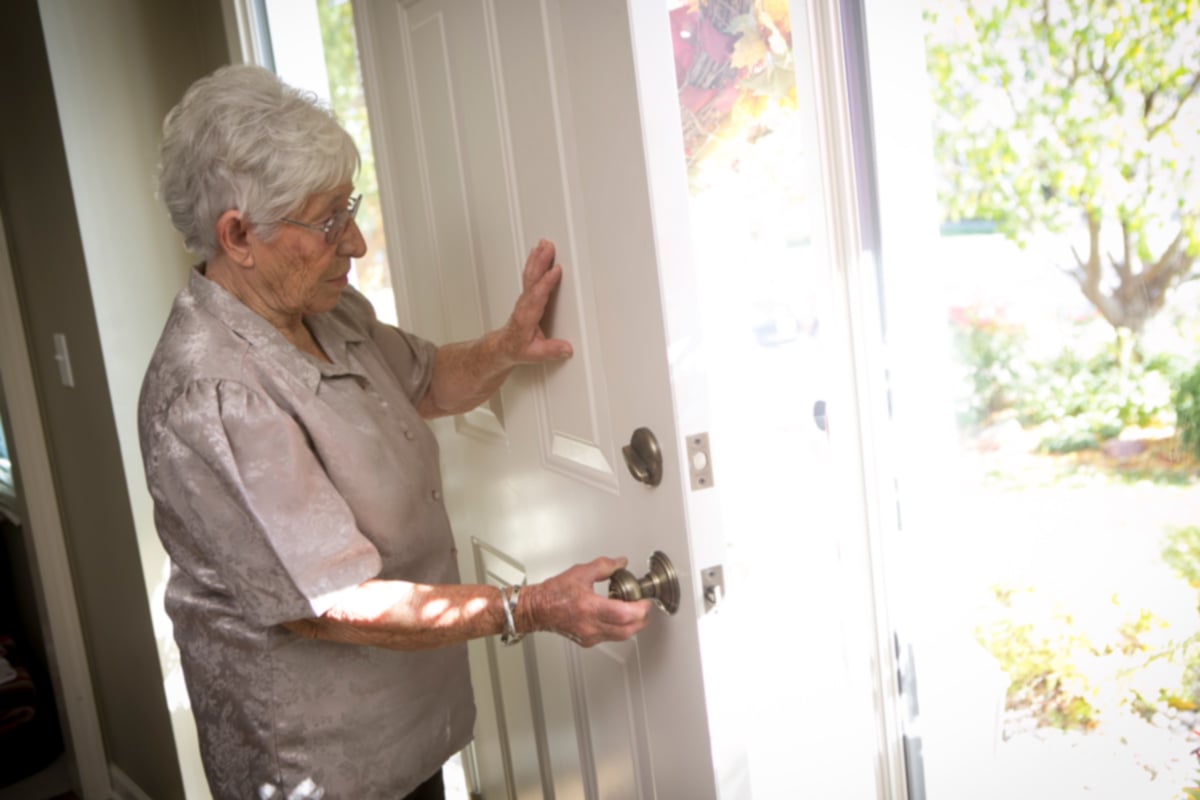It can be one of the most upsetting things about being a family caregiver. You’re always quick to assist your mom at the drop of a hat. You spend hours helping her, take over household chores, drive her to medical appointments, struggle with her personal care. Yet instead of thanks, you get accusations: “You’ve taken my purse! You’re stealing my money.” Then, as usual, after a few minutes’ search, the purse turns up under the pillow, where Mom hid and forgot it.
Delusions—fixed, false ideas—are a common dementia-related behaviour. Often they can simply be caused by the very nature of the forgetfulness of these diseases: Like many seniors, Mother hid her purse “to keep it safe.” However, she forgets that she put in under the pillow so now it’s missing. You are the only person who has visited; therefore, you must be the guilty party.
Likewise, mistaken identity, another common delusion, can be caused by forgetfulness. As painful as it may be, your father may not remember what his wife, daughter, or son look like, so he no longer recognizes them. Or, forgetful and confused, he may think he is 40 years old, not 80, and so may mistake his grandson for his son.
Sometimes delusions are more mysterious. A person living with dementia may decide that the neighbours have moved the fence in six feet during the night or that someone is constantly breaking into the house. In any case, delusions can be frightening and painful for both the individual and the family.
Delusions can be one of the most challenging symptoms of Alzheimer’s disease and other dementias. If they become overwhelming, consider consulting a professional. Reach out to the person’s doctor, a geriatric care manager, or a professional caregiver who has received training in handling challenging dementia-related behaviours.
Delusions—fixed, false ideas—are a common dementia-related behaviour. Often they can simply be caused by the very nature of the forgetfulness of these diseases: Like many seniors, Mother hid her purse “to keep it safe.” However, she forgets that she put in under the pillow so now it’s missing. You are the only person who has visited; therefore, you must be the guilty party.
Likewise, mistaken identity, another common delusion, can be caused by forgetfulness. As painful as it may be, your father may not remember what his wife, daughter, or son look like, so he no longer recognizes them. Or, forgetful and confused, he may think he is 40 years old, not 80, and so may mistake his grandson for his son.
Sometimes delusions are more mysterious. A person living with dementia may decide that the neighbours have moved the fence in six feet during the night or that someone is constantly breaking into the house. In any case, delusions can be frightening and painful for both the individual and the family.
Tips for Managing Dementia-Related Delusions
- In cases of mistaken identity, try offering some gentle cues. “Gosh, honey, it’s me, Mary, your wife!” You can help maintain another’s dignity by saying, “You’ve got such a sense of humor” or “I know I look young enough to be your daughter.”
- Let the person know you have heard his or her concern. “Mom, I’m so sorry your purse is missing. That is upsetting. Let’s look around just in case it accidentally got misplaced.” You can then celebrate with a big smile and hug when you “find” the purse.
- “Tell me about that purse. Is it the red one or blue one?” Asking additional questions can allow the person to tell you more about worries and concerns.
- Don’t argue. You can almost never talk the person out of a belief or concern or convince him that he or she is wrong. If your family member thinks the fence has been moved, say that you will work on getting to the bottom of the situation or call the city to investigate.
- Take advantage of the passage of time. Sometimes your best efforts will fail and the person will continue to express the delusion. If you provide ongoing reassurance and take a low-key approach, these delusions will often go away on their own.
- Try not to overreact or get upset, even if, like the false accusation, the delusion is upsetting. Remember, a real disease or disorder is attacking the brain. It’s the disease at work, not the person.
Delusions can be one of the most challenging symptoms of Alzheimer’s disease and other dementias. If they become overwhelming, consider consulting a professional. Reach out to the person’s doctor, a geriatric care manager, or a professional caregiver who has received training in handling challenging dementia-related behaviours.
Person-Centered Dementia Care
Home Instead Care Professionals are trained using a one-of-a-kind protocol for Alzheimer’s and other dementias. Our person-centered approach honors your loved one and preserves their dignity.




